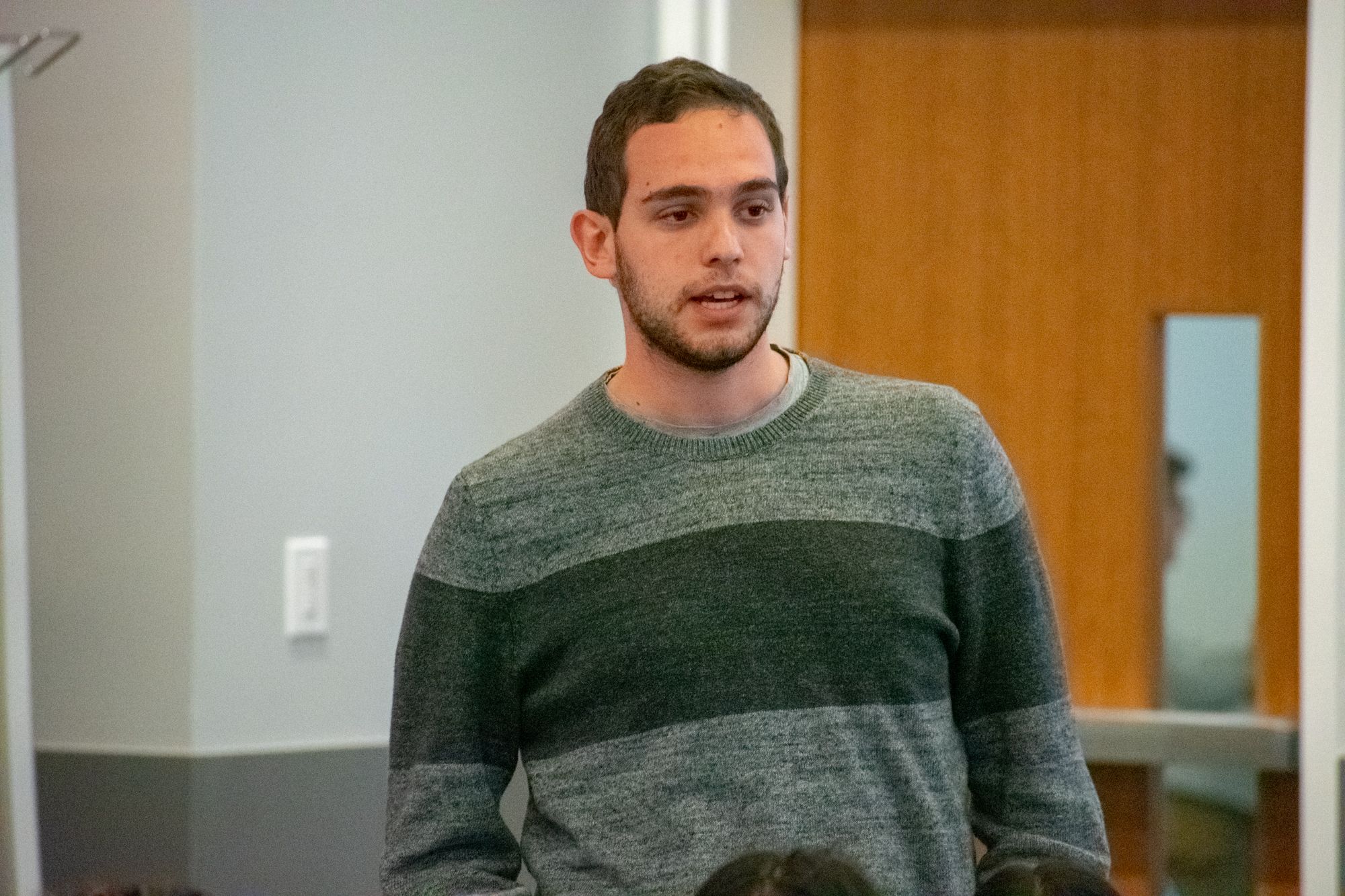The University of Maryland SGA renewed an act to fund CPR training at a reduced rate for undergraduate students Wednesday.
The measure passed 26-0, with one abstention.
Adult and pediatric first aid and CPR certifications can cost up to $100, according to the Red Cross website. With the renewed Student Government Association funding, students can get a CPR certification through the university for $20. The student governing body used its general legislative budget, which is fully funded by student fees, to cover the difference.
[Read more: UMD SGA urges Board of Regents to expand veteran tuition benefits]
The program began in spring 2018 after sophomore biochemistry and neurophysiology major David Rekhtman learned this university’s Department of Recreation and Wellness is certified to administer CPR training.
Rekhtman reached out and began a series of negotiations to see if the department — which previously limited training and certification to its staff members — would train students, too.
RecWell agreed, and initially offered to teach the class to the general undergraduate student body for a reduced fee of $70, but the SGA agreed to subsidize the cost further to allow more students to participate, Rekhtman said.
Colleen Herrmann, a member of the SGA Health and Wellness committee, said her committee supported the bill because the skill is “so important.”
“You never know when you’re going to be in a situation where you’d need to use it,” the sophomore public policy major said. “It’s really important that we’re able to have those basic skills to potentially save someone’s life in a crisis.”
[Read more: University of Maryland SGA funds campus CPR training, reducing cost for students]
Up to 44 students can participate in the training, which will take place in Eppley Recreation Center on Saturday, April 6 from 9 a.m. to 3 p.m. Students can pay and register at Eppley by using cash, credit card or check, and will now be able to register other students, as long as they have the other person’s student ID card.
“We are really trying to make it so it’s easier for people to get registered,” Rekhtman said.
The program has been in place for the last two semesters, training and certifying a total of 120 undergraduate students. During the program’s first semester, RecWell offered two workshops a semester, and it certified about 80 students, Rekhtman said. Only one workshop was offered the following semester, and they certified about 40 students, he said.
“It’s a big commitment,” Rekhtman said. “To get the full attendance for two is quite challenging.”
The class is done through blended learning. Half of the course is taught and completed online, while the rest — the more practical application and practice portion — is completed in person. The online section takes three hours to complete, while the in-person training takes six hours.
Although the program has been offered to students in the past, this is the first time that RecWell and the SGA have partnered with other student groups, including the Kinesiology Student Organization.
Sammy Bowen, the organization’s president, thought it was an “excellent idea” to have the program for students.
“Most of our members are either looking to pursue jobs after graduation or attend graduate school after graduation that will require CPR as a prerequisite,” the junior kinesiology major said. “It’s extremely conveniently located.”



